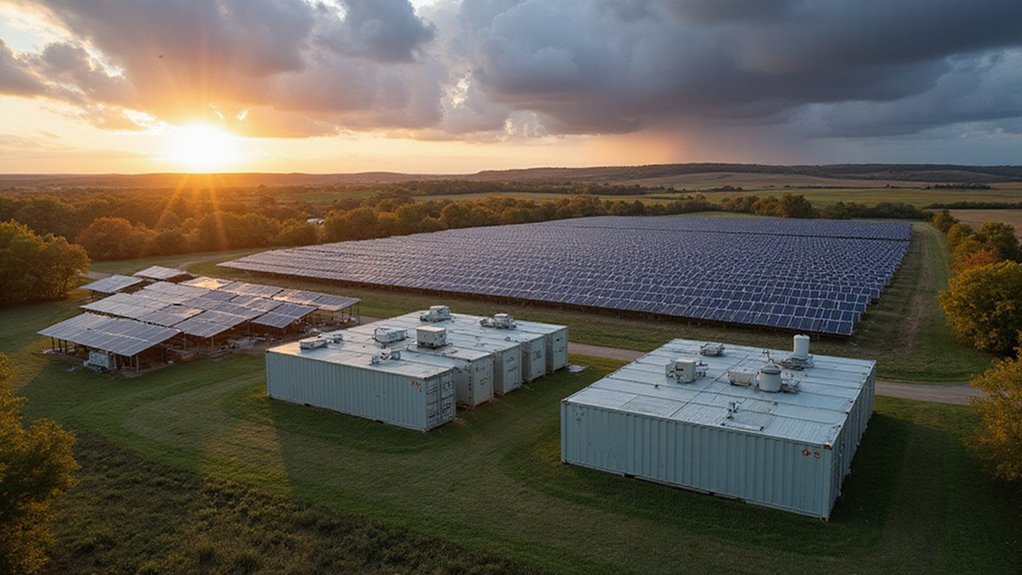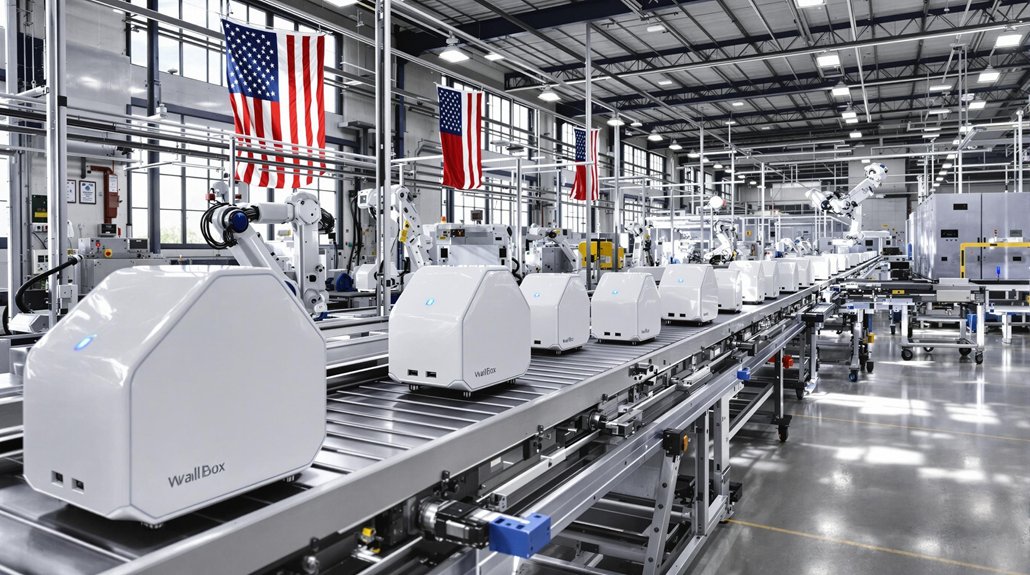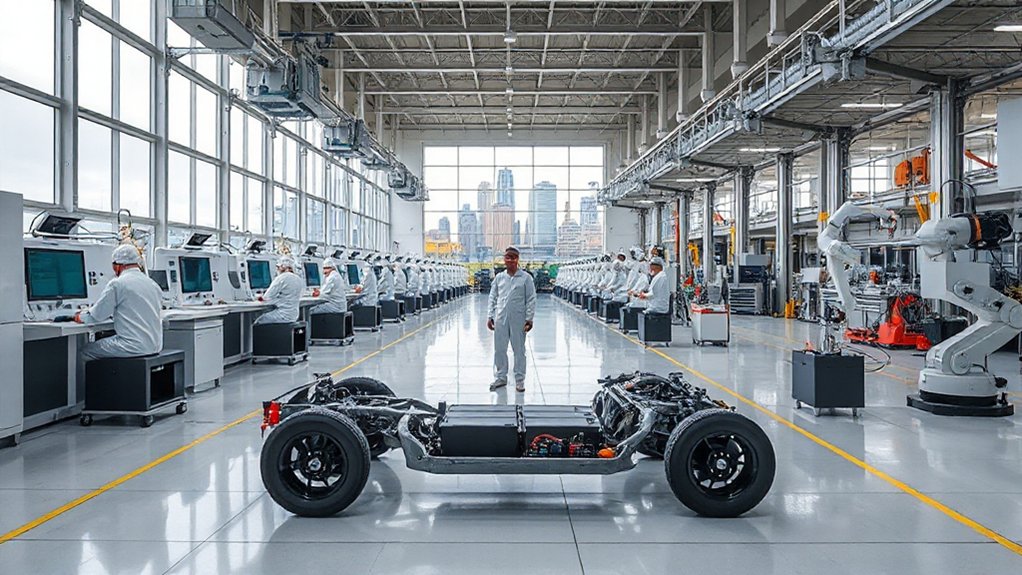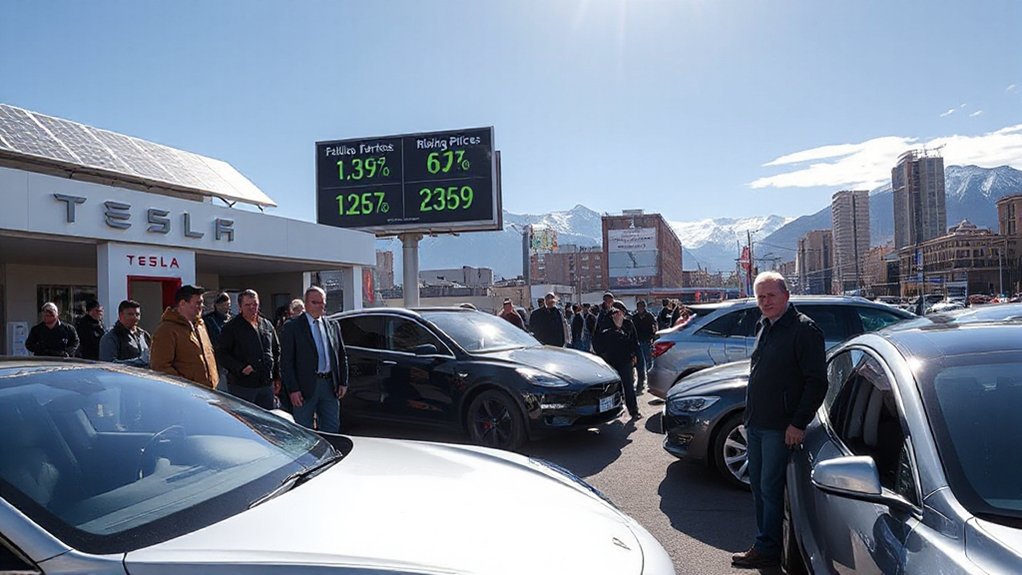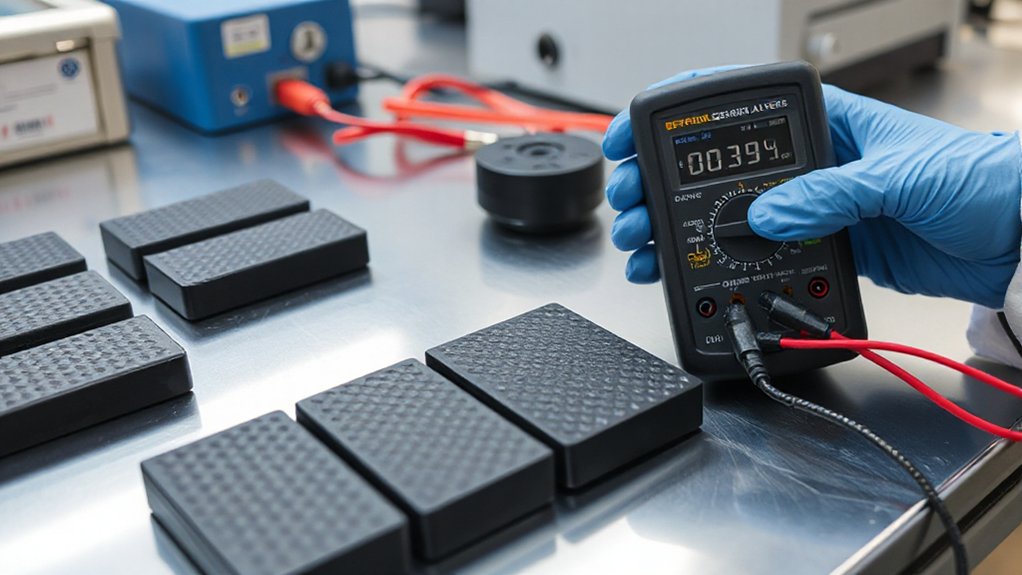The battery storage system that went live in Wisconsin last June isn’t exactly small potatoes. This 110-megawatt beast in Kenosha County can power more than 130,000 homes for four hours straight. That’s right – four whole hours of stored sunshine, ready to deploy when the grid needs it most.
The Paris Solar-Battery Park represents Wisconsin’s first large-scale battery storage project, and it’s about time. The solar portion kicked off in December 2024, churning out enough juice to power 55,000 homes annually. Then came the batteries in June 2025, turning this thing into a genuine game-changer. Invenergy developed it, but We Energies owns the majority stake, with Wisconsin Public Service and Madison Gas and Electric splitting the rest.
Here’s where it gets interesting – and by interesting, I mean expensive. The original price tag? A cool $400 million. The actual cost? North of $574 million. That’s more than $100 million over budget, folks. Blame pandemic-era inflation, supply chain nightmares, and delays importing solar panels. Sometimes things just don’t go according to plan. State utility regulators have now launched a statewide investigation into utility construction cost overruns.
When a $400 million project hits $574 million, that’s not a rounding error.
But let’s talk about what this thing actually does. It stores excess power on sunny days and releases it at night or during those lovely Wisconsin mornings when the sun’s still hitting snooze. “Sunshine after sunset,” they call it. Cute.
Wisconsin’s solar scene has been pretty modest until now. Most of the state’s 20-plus solar farms max out at 1-5 megawatts. Paris changes that equation dramatically. Meanwhile, Alliant Energy‘s cooking up a dozen more projects totaling over a gigawatt. Not too shabby.
This project lands as We Energies shuts down older, less efficient plants. The Public Service Commission also greenlit two new natural gas plants in Oak Creek and Town of Paris. Southern California has already proven that solar projects with 600MW capacity can generate substantial revenue while creating more jobs than fossil fuel operations. It’s all part of their “all of the above” energy strategy – solar, batteries, natural gas, whatever works. Other Wisconsin utilities are jumping on the battery bandwagon too, with Green Bay approving a 200 MW project from Tern Energy Storage LLC.
The Paris project proves large-scale battery storage can work in Wisconsin. Historic? Sure. Groundbreaking? Maybe. But mostly it’s just smart infrastructure that keeps the lights on when Mother Nature doesn’t cooperate.
References
- https://www.wpr.org/news/wisconsin-first-battery-storage-system-online-kenosha-county
- https://www.renewableenergyworld.com/energy-storage/battery/wisconsins-first-large-scale-energy-storage-project-is-now-online/
- https://news.we-energies.com/wisconsins-first-large-scale-energy-storage-project-now-serving-customers/
- https://spectrumnews1.com/wi/milwaukee/news/2025/06/03/wisconsin–energy-storage-project–we-energies–kenosha
- https://www.renewwisconsin.org/solarfarms/
